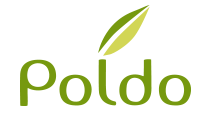What’s the Oil Pulling?
The oil pulling is an ancient practice used in Ayurvedic medicine. With a few simple gestures this ritual eliminates bacteria and harmful agents that each day can damage the balance of the mouth and, consequently, of our whole body.
Do oil pulling, simple but effective, means taking care of our oral hygiene and overall ourselves.
Forced to the frenetic life, with less and less time available, do oil pulling allow us to significantly contribute to our well-being and to our mental and physical balance.
How to practice the oil pulling?
After cleaning the tongue is simply gargle with a tablespoon of oil without swallowing it to clear out of our mouth most of the pathogens.
The oil in fact, mixing with spittle, attracts bacteria and impurities that are formed every day in our mouth. Spitting the oil will eliminate most of them since the oil can penetrate those hard to reach.

Why is it healthier to do oil pulling with Olio Poldo?
Use an high quality oil as Olio Poldo to make oil pulling means not only increase efficiency, but also provide a pleasant feeling of clean into the mouth.
Olio Poldo, thanks to its fine quality, is considerably indicated for this purpose.
In addition, scientific studies such as the one published in 2008 by the African Journal of Microbiology Research1 shows that after 40 days of oil pulling the sample of participants reported a reduction of 20% of oral bacteria such as Streptococcus mutans, which cause toxins that pollute the blood,causing various inflammatory disorders.

In general, the oil pulling helps reduce chronic diseases or chronic conditions caused by inflammation: allergies, asthma, high blood sugar, headache, bronchitis, lung disease, arthritis, insomnia, hormonal problems, infections, high blood pressure, diabetes, acne, bronchitis,dermatitis and sinusitis are some of the problems that can be treated by this miraculous practice.
Notes
1 http://www.academicjournals.org/journal/AJMR/article-abstract/21CA7A911094



